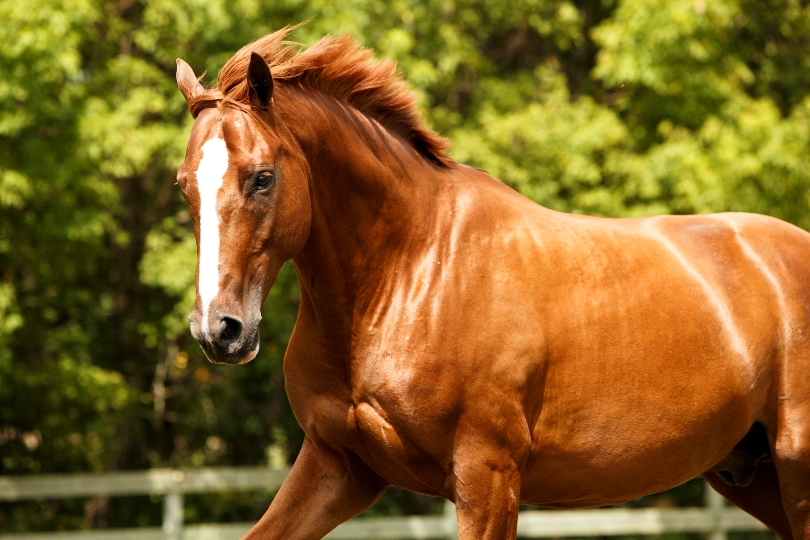Blood Circulation Matters to Horses

Your horse’s circulation impacts many areas of his life and health, delivering oxygen and nutrients to every cell in his body while aiding in various body functions. Because of this, good circulation offers many tangible benefits. It helps to keep your horse’s muscles strong, ensure optimal hoof health, speed recovery after injury or disease, reduce the pain and swelling of arthritis, and even improve your horse’s coat.
With so much riding on good circulation (no pun intended) it’s important to aid that natural process in your horse as much as possible. Here are a few basic blood circulation improvement tips for your horse.
Exercise:
Regular exercise is the first thing to consider if you want to maintain or improve your horse’s circulation. Regular exercise gets the muscles contracting and the heart pumping, thereby increasing blood flow to all your horse’s tissues and organs. On the correct footing, exercise helps to increase blood circulation to your horse’s hooves as well, encouraging proper formation and growth.
Grooming:
Grooming should always be a part of your horse’s care routine. Brushing removes dirt, dead skin cells and shed hair, while also increasing blood flow to the skin, which will give your horse a healthier coat. Consider replacing metal or plastic curry combs with rubber ones. The rubber “fingers” on the comb work just as well and without the possibility of scratching your horse’s skin.
Massage:
Massage is a great way to increase your horse’s circulation. It can benefit both the muscles and the skin, and is also a wonderful way to spend quality time with your horse. You can simply massage your horse’s back and shoulder muscles with your hands, just as you would a person. Watch your horse for clues as to what feels good and what doesn’t. Electric equine massagers are also available. Another option to consider is using a massaging gel pad under your saddle. This gives your horse a gentle massage every time you ride, encouraging blood flow to the muscles in his back while preventing saddle sores at the same time.
Relaxation:
One unique aspect of the horse circulatory system, according to an article on Equimed.com, is the role the spleen plays in blood circulation. As in all mammals, your horse’s spleen removes damaged and diseased red and white blood cells from the blood. But, unlike in other animals, your horse’s spleen can enlarge and contract. In a relaxed state, the spleen enlarges, allowing in more blood and making it possible for the organ to work more efficiently as it cleans the blood. Continual stress can impede this process, since both stress and exercise cause the spleen to contract. By helping your horse into a relaxed state, you are allowing this normal and healthy process to take place. Relaxing activities might include brushing, massage, bathing or simply allowing your horse time to unwind in an open pasture.
Keep it cool:
When your horse is overheated, according to an article on Horse & Rider, vessels in both his skin and lungs enlarge. This is the body’s natural attempt to shed excess body heat. Unfortunately, this also means that blood is being shunted away from your horse’s brain and major organs. By educating yourself on the dangers of overheating in horses and taking the necessary steps to prevent it, you are not only saving your horse from heat stress, you are also aiding his overall circulation.
High-tech options
Horse owners today have access to some amazing high-tech options for improving their horses’ circulation; options that weren’t available just a few years ago. Circulation-improving products include ceramic infused blankets designed to radiate body heat back into the muscles, vibrating stall floors and even hyperbaric chambers designed just for horses.
You know your horse and which of these techniques he will or won’t tolerate. Remember, even the most even-tempered horse can kick or bite when it feels provoked, so always approach your horse with reasonable caution.
Of course, you should also check with your veterinarian before adding any new process to your horse’s health care routine. Every horse has different needs and health issues; your vet can tell you which of the options discussed above are best for your horse’s individual needs.
